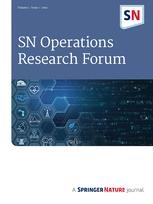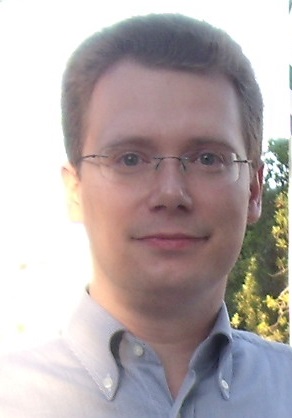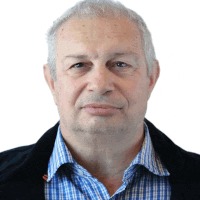Topics
The Topics of our conference are
ECONOMICS: Organisational Behaviour, Group Dynamics, Organisational Design, Business Management, Financial Management, Financial Accounting, Decision Analysis, Production and Operations Management , Project Management, Human Resources Management, Quality Management, Business Process Reengineering, Business Design and Business Strategy, Managerial Accounting , Multinational Business Design and Development, Business Ethics, Risk Management and Risk Analysis, Marketing, Production and Logistics, Security Problems, Manufacturing, Manufacturing and Logistics, Integrated Manufacturing Systems, Production Control, Control Systems, Monitoring, Diagnosis and Maintenance, Real-Time Systems, Large Scale Systems, Hierarchical Systems, Man-Machine Integration, Manufacturing Systems, Concurrent Engineering, Lean/Agile/Virtual Manufacturing, Electronic Commerce, Digital Marketing, Digital Libraries Administration, Virtual Reality, Virtual and Extended Enterprises, Business Law, Legal Aspects of Electronic Transactions, Security and Electronic Payment Systems, Strategic Inventory Control and Warehousing, Public Finance , Policies to Increase Economic Growth, Labor Economics, International Trade, Natural Resources and the Environment, National and International Monetary Economics, Regional Economics, Taxation andGovernment Expenditure, Stock Exchange Analysis and Prediction, Health Economics, Labor Economics, Agriculture Economics, Managerial Economics, Economics of Energy Systems, Economics of Transportation Systems, Political Sciences, Sociology, Crisis Management, Cooperations of Companies, Banking Sector, History of Economics and Business Science, Education, Applications.
ENGINEERING AND COMPUTATIONAL SCIENCE: Matrix Theory, Tensor Analysis, Multilinear Algebra, Spaces over fields or rings, Tensor algebras or subalgebras, Nonnegative matrices, Inequalities in linear algebra, Combinatorial linear algebra, Matrix numerical linear analysis, Representation theory, Lie theory, Invariant theory, Functional analysis, Computational Linear Algebra, Markov Chains, Iterative methods, Error Estimation in Iterative Methods, Eigenvalue Problems, Componentwise and Structured Perturbations, Convex Optimization, Approximation of Large-scale Dynamical Systems, Large Scale Systems, Identification, Linear Algebra in Simulation and Mathematical Biology, Linear Algebra Information Retrieval and Management, Totally Nonnegative Matrices, Special Topics and Applications. Numerical Methods for Solving Equations, Polynomial Factorization, Numerical Methods for Ordinary and Partial Differential Equations, Numerical Methods for Integral Equations, Numerical Methods for Integral-Differential Equations, Numerical Methods for Algebro-Differential Equations, Numerical Methods for Singular Equations, Numerical Linear Algebra, Numerical Behaviour of Optimization Algorithms, The Art of Computer Programming of Numerical Methods, Parallel Computing, Distributed Computing, Supercomputing, Finite Elements, Mathematical Aspects of Scientific Computing, Error Analysis, Stability Problems, Convergence Problems, High Complexity Numerical Methods, Numerical Mathematics for Non-linear Systems Study, Numerical Computation in Dynamical Systems and Chaos, Simulation, Numerical Analysis problems in Science and Engineering, Special Topics and Applications. Ordinary differential equations, Partial differential equations, Stochastic differential equations, Topological dynamics, Integral equations, functional differential equations, Differential Equations in Sobolev Spaces, Variational methods in ODEs and in PDEs, Existence, Multiplicity results for solutions to ODEs and PDEs, Nonlinear Systems, Chaos, Morse theory, Manifolds, Bifurcation and Degree theory, Singular perturbation problems, Qualitative theory (stability, periodicity, boundedness, etc.), Difference Equations, Numerical Methods for ODEs and PDEs, Diff.Equations in Science and Engineering, Special Topics and Applications. Theoretical Probability Theory, Applied Probability Theory, Stochastic Processes, Mathematical Statistics, Applied Statistics, Game Theory, Prediction Theory, Estimation Theory, Identification, Simulation, Mathematical Programming, Statistical Techniques, Continuous and Discrete optimization, Stochastic models, Optimization theory, Multi-person decisions, New Theories in Operational Research, Queueing Theory, Reliability Theory, Routing Theory, Measurement Theory, Marketing and Production Organization, Transportation Systems, Telecommunication theory, Applications in Computer engineering, Epidemiology, Financial mathematics, Information systems and traffic management, Inventory theory, Scheduling, Management Science, Applications in Science and Engineering,Related Topics. Optimization Theory, Linear Programming, Quadratic Programming, Convex Programming, Nonlinear Programming, Complementarity problems, Stochastic Programming, Combinatorial Programming, Integer Programming, Convex, Nonsmooth and Variational analysis, Multiobjective programming, Game Theory, Algorithms for parallel architectures, Global Optimization, Neural Networks for Optimization, Evolutionary Computing, Genetic Algorithms, Optimal Control, Stochastic Control, Variational Principles and Applications, Software Development for Optimization, Heuristic Algorithms for Optimization, Tabu Methods, Simulated Annealing, Computational Analysis of Optimization Algorithms. Algorithms Theory: New Problems - New Theories, Computational Complexity, Convergence, Error Analysis, Data structures, Algorithms on graphs, Arithmetic algorithms, Combinatorial searches and objects, Discrete optimization, Geometric algorithms, Methods of algorithmic analysis, New algorithms and data structures, New analyses or comparisons of known algorithms, Semantics, Predictive Semantics, Randomized Algorithms, Equational logic programming, Functional Languages, Parallel and Distributed Computation, Modern Problems in Discrete mathematics, Combinatorics and Graph Theory, Functional systems theory, Coding, Cryptology, Object-Oriented Programming, Computerised Signal Processing, Computer Graphics, Computational Geometry, Industrial Systems, Real Time Systems, Multimedia, Probability problems of discrete mathematics, Discrete structures, Extremal problems, Posets, Enumeration problems, Network algorithms, Combinatorial Optimization and Mathematical Programming, Network optimization, Integer programming, Approximation algorithms, Randomized algorithms, Theoretical Computer Science, Coding and Information Theory, Error-correcting codes, Data compression, Switching networks, Communication protocols, Number theory, Group Theory and Applications, Ideal Theory and Applications, Ring Theory and Applications, Field Theory and Applications, Galois Theory and Applications, Systems Theory, Control Systems, Robotics, Computational Intelligence, Neural Networks, Fuzzy Logic Systems and technology, Knowledge Modelling, Decision Support Systems, Hierarchical Control Systems, Aerospace Systems, Stochastic Systems, Non-linear Systems, Telecommunication Systems, Information Systems, Signal Processing Systems, Multidimensional Systems, Multivariable systems, Hybrid Systems, Multirate Systems, Speech and Image Processing Systems, Discrete Event Dynamic Systems, Manufacturing Systems, Decentralised Systems, Remote Sensing, Human-Machine Systems, Sonar and underwater acoustic systems, Undersea Systems, Navigation and Tracking Systems, Space Systems, Wavelets, Verification and Validation, Virtual Reality, Computer Vision, Computer Algebra, Symbolic Computation, Adaptive and Learning Systems, Classification, Identification, Mathematical Control Theory, Telecommunications, Communication Theory, Security, Protocols, Microwaves, Antennas, Radar, Propagation, Related Topics. Systems Theory, Circuits, Control Systems, Stochastic Systems, Non-linear Systems, Information Systems, Signal Processing Systems, Multidimensional Systems, Multivariable systems, Hybrid Systems, Multirate Systems, Robotics, Man-Machine Systems, Speech and Image Processing Systems, Discrete Event Dynamic Systems, Manufacturing Systems, Decentralised Systems, Remote Sensing, Artificial Intelligence, Intelligent Machines, Fuzzy Systems, Neural Networks, Knowledge Modelling, Decision Support Systems, Hierarchical Control Systems, Aerospace Systems, Analog, Digital and Mixed Mode Circuits and Systems, Electronics and Power Electronics, Nanocircuits and Nanotechnology, Medical Electronics, Lightwave Engineering, Microelectromechanical Systems, Environment Modeling, Sonar and underwater acoustic systems, Undersea Systems, Navigation and Tracking Systems, Space Systems, Wavelets, Systems Techniques for Wireless Applications, Filter design., Parallel and Distributed Systems, Information Systems, Management and Economic Systems, High Performance and Large Scale Computing, Clustering, Grid Computing, Simulation Environments, Web-based Simulation, Simulation of Biological Systems, Simulation in Environmental Sciences, Simulation in Biology, Medicine, Health Care Management, Logistics, Expert Systems, Petri Nets, Visual Reality, Multimedia, Specific Languages, Geographical Information Systems, Multi-site Simulation, Measurement and Hybrid Technique, Markov Models, Web technologies, Script Languages and Script technologies, Software Tools, Graph Theory, Power Systems, Thermal and Chemical Systems, Fluid Dynamics, Heat and Mass transfer, Elasticity and Applications, Applied Thermodynamics, Applied Electrodynamics, Heat and Mass transfer, Transportation Systems, Social and Economic Systems, Lakes and Rivers Management, Game Theory, Simulation for Game Animation, Facial Animation and Movies, Skeletal Animation, Game Animation, 3D Programming, Voice Interaction,, Cognitive Science and Technology, Art and Simulation, Simulation in Armed Forces, Applications in audiovisual technologies and music, Others...
The Ιnternational Conference on Economics, Engineering, Applied Computational Science (EEACS) is committed to maintaining high standards through a rigorous peer-review together with strict ethical policies. Any infringements of professional ethical codes, such as plagiarism, fraudulent use of data, bogus claims of authorship, should be taken very seriously by the editors with zero tolerance. The "Ιnternational Journal of Electrical Engineering and Computer Science (EEACS)" follows the Code of Conduct of the Committee on Publication Ethics (COPE), and follows the COPE Flowcharts for Resolving Cases of Suspected Misconduct.
The submitted manuscript should not have been previously published in any form and must not be currently under consideration for publication elsewhere.

Terms of Collaboration
1). COPYRIGHT: By submitting a paper the author understands that its copyright is transferred to the Ιnternational Conference on Economics, Engineering, Applied Computational Science (EEACS).
The Ιnternational Conference on Economics, Engineering, Applied Computational Science (EEACS) may publish it at their discretion and the author may not resubmit it anywhere else. Based on this copyright transfer of the paper,
the Ιnternational Conference on Economics, Engineering, Applied Computational Science (EEACS)is entitled to publish the paper ir not.
2). After the Review process is completed by the Assoc. Editor and the Reviewers, it is no longer allowed for the authors to withdraw their paper.
3). PEER REVIEW: All submitted papers are subject to strict peer-review process by at least \ three international reviewers that are experts in the area of the particular paper. The factors that are taken into account in review are relevance, soundness, significance, originality, readability and language. The possible decisions include acceptance, acceptance with revisions, or rejection.
4). If authors are encouraged to revise and resubmit a submission, there is no guarantee that the revised submission will be accepted.
5). Rejected articles will not be re-reviewed.
6). Articles may be rejected without review if they are obviously not suitable for publication.
7). The paper acceptance is constrained by such legal requirements as shall then be in force regarding libel, copyright infringement and plagiarism.
8). The reviewers evaluate manuscripts for their intellectual content without regard to race, gender, sexual orientation, religious belief, ethnic origin, citizenship, or political philosophy of the authors.
9). The staff must not disclose any information about a submitted manuscript to anyone other than the corresponding author, reviewers, other editorial advisers, and the publisher, as appropriate.
10). Reviews should be conducted objectively. Personal criticism of the author is inappropriate. Referees should express their views clearly with supporting arguments.
11). Peer review assists the publisher in making editorial decisions and through the editorial communications with the experts form the scientific board ant the author may also assist the author in improving the paper.
12). Manuscripts received for review are treated as confidential documents and are reviewed by anonymous staff.
13). A reviewer should also call to the publisher's attention any substantial similarity or overlap between the manuscript under consideration and any other published paper of which they have personal knowledge.
14). Authors of contributions and studies research should present an accurate account of the work performed as well as an objective discussion of its significance.
15). A paper should contain sufficient detail and references to permit others to replicate the work. Fraudulent or knowingly inaccurate statements constitute unethical behavior and are unacceptable.
16). The authors should ensure that they have written entirely original works, and if the authors have used the work and/or words of others that this has been appropriately cited or quoted.
17). Submitting the same manuscript to more than one publication concurrently constitutes unethical publishing behaviour and is unacceptable.
18). Authorship should be limited to those who have made a significant contribution to the conception, design, execution, or interpretation of the reported study.
19). All sources of financial support for the project should be disclosed.
20). The Ιnternational Conference on Economics, Engineering, Applied Computational Science (EEACS) does not require from the authors to submit any copyright form. An author can withdraw a paper until 30 days after the paper submission. After these 30 days no withdrawal is allowed.

 and
and 











